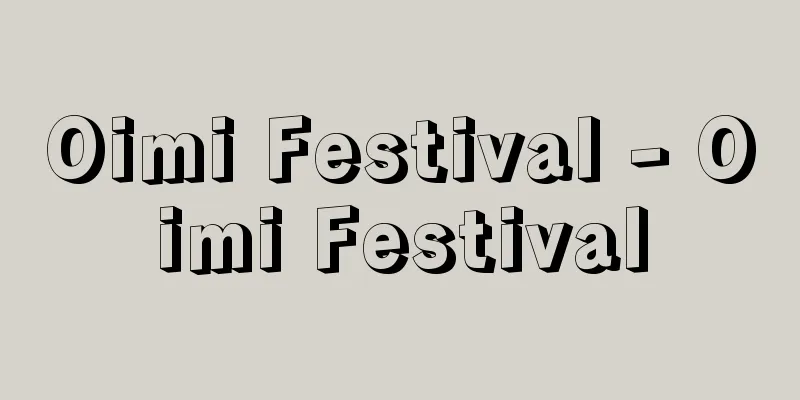Philippe Pétain

|
French soldier and politician. He studied at the Military Academy and the Army University. As an instructor at the Army University (1901-1910), he taught infantry science, but his theory of emphasising the superiority of firepower did not fit with the aggressive offensive theory that was prevalent at the time, and he only held the rank of colonel when World War I broke out. He achieved military success with the outbreak of the war and was rapidly promoted. In 1916, as commander of the Second Army, he defended the Verdun fortress under a fierce attack by the German army, and was praised as the "Victor of Verdun." This, combined with his handsome appearance, made him a national hero. In 1917, he became commander-in-chief of all French armies, and with compassion, he suppressed the successive civil disobedience movements of French soldiers who were despairing of the war with no end in sight, preventing a crisis in the regime. He became a marshal at the end of the war, suppressed the Rif rebellion in Morocco in 1925-1926, and served as Minister of War (1934) and Ambassador to Spain (1939-1940). He was a leading figure in the French Army, but he made the mistake of neglecting de Gaulle's theory of emphasizing tank divisions, being stuck in his experience of World War I. In the spring of 1940, in the midst of the German offensive, he joined the Reynaud cabinet as Deputy Prime Minister, and eventually became Prime Minister himself, achieving an armistice with Germany. During the Vichy period, as head of state, he aimed to establish an authoritarian regime with the slogan "Work, Family, Fatherland", but at the same time, he implemented a policy of collaboration with Germany, even though he was forced to do so, and gradually became hostile to the Resistance movement. After the liberation of France, he was sentenced to death for collaboration, but de Gaulle commuted the sentence to life imprisonment, and he died while serving his sentence. [Tetsuya Hirase] [References] | | |Source: Shogakukan Encyclopedia Nipponica About Encyclopedia Nipponica Information | Legend |
|
フランスの軍人、政治家。陸軍士官学校、陸軍大学に学ぶ。陸軍大学教官(1901~1910)として歩兵学を講じたが、火力の優越を重視するその理論は当時支配的であった積極攻勢論にあわず、第一次世界大戦勃発(ぼっぱつ)時は大佐にとどまっていた。開戦とともに戦功を収め急速に昇進し、1916年第二軍司令官としてドイツ軍猛攻下のベルダン要塞(ようさい)を死守して「ベルダンの勝利者」とたたえられ、その端正な風貌(ふうぼう)と相まって国民的英雄となった。1917年には全フランス軍の総司令官に就任し、出口のみえない戦争に絶望したフランス軍兵士の相次ぐ不服従運動を温情的処置により抑え、体制の危機を防いだ。大戦終了時に元帥となった彼は、1925~1926年モロッコのリフ人の大反乱を鎮圧し、陸相(1934)、駐スペイン大使(1939~1940)を歴任しフランス陸軍の大御所的存在であったが、第一次世界大戦の経験にとらわれてドゴールの戦車師団重視の理論を軽視する誤りを犯した。1940年春のドイツ軍の大攻勢の最中にレーノー内閣に副首相として入閣し、やがて自ら首相に就任して対独休戦を実現した。ビシー時代には国家元首として「労働、家族、祖国」をスローガンとする権威主義体制の樹立を目ざす一方、強いられてではあったが対独協力政策を実行し、しだいにレジスタンス運動と敵対した。フランス解放後、対敵協力の罪で死刑を宣せられたが、ドゴールにより終身禁錮刑に減ぜられ、服役中に死亡した。 [平瀬徹也] [参照項目] | | |出典 小学館 日本大百科全書(ニッポニカ)日本大百科全書(ニッポニカ)について 情報 | 凡例 |
<<: Petanque - Petanque (English spelling)
>>: Pedal - Pedal (English spelling)
Recommend
Shiramine Shrine - Shiramine Shrine
Located in Kamigyo Ward, Kyoto City. Formerly a go...
100% pure fern - 100% pure fern
A perennial fern of the Dryopteris family (illustr...
Kenji Kawata
1900-1995 Labor activist and politician from the ...
Agitator truck
⇒Mixer truck Source: About Shogakukan Digital Daij...
koilē (English spelling) koile
…In ancient geography, it was the area from the G...
Antimony flower - Antimony flower
…Antimony minerals include stibnite (Sb 2 S 3 ) ,...
ischial callosity
...The skin on the buttocks that turns red in thi...
Keep Kamayo - Keep Kamayo
…The Inca Quipu was the only method of recording ...
Trill
…Spanish pello [peʎo] (baby bird). (c) Trill [r] ...
Ambroni
…In 105 BC, they annihilated the Roman army at th...
The Four Heavenly Kings of Oda Nobunaga
...Volume 3 of the "Jikkunsho" lists Mi...
Neotoma
…A general term for mammals of the Neotoma genus ...
HF band - Ecchi2tai
...535kHz and below are used for navigation aids ...
Winfield, JR - Winfield
…the American name for polyethylene terephthalate...
Spondylolisthesis - Spondylolisthesis
A general term for symptoms in which a vertebra sl...









![Shabadah [state] - Shabadah](/upload/images/67cbcef960e59.webp)